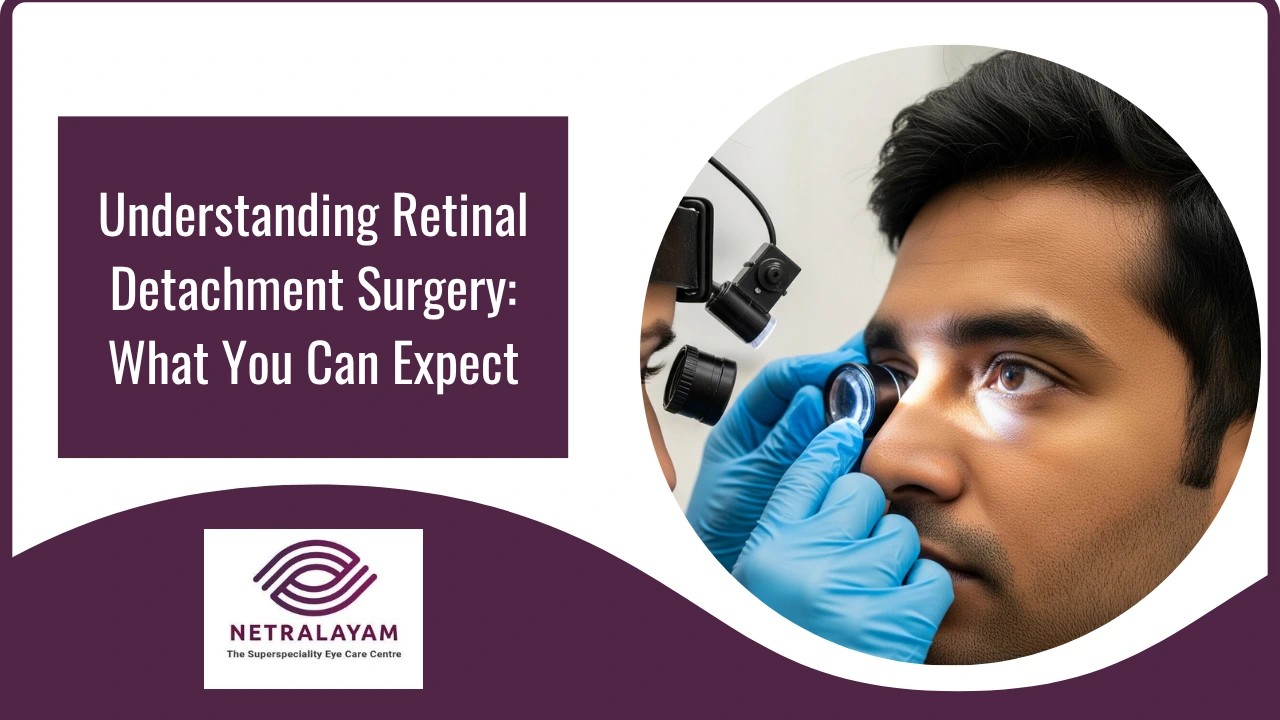Committed to Eye Care with Compassion, Technology and Competency
Committed to Eye Care with Compassion, Technology and Competency

6/24/2025
Retinal detachment might sound a little intimidating, and rightly so, because it’s a serious eye condition that can result in permanent vision loss if not treated quickly. The good news is that retinal detachment surgery is highly effective when done promptly. If you or a loved one is facing this diagnosis, it’s important to understand what to expect before, during, and after surgery.
Continue reading to gain a clear understanding of retinal detachment, the importance of surgery, various treatments, and the recovery process.
Retinal detachment occurs when the retina, the light-sensitive layer at the back of the eye, separates from its normal position. This disrupts vision and, if untreated, can lead to blindness. When detached, the retina can no longer transmit visual signals properly.
There are three main types of retinal detachment surgery, and the choice depends on the severity and location of the detachment:
Your retinal specialist will evaluate your condition and determine the most effective surgical approach.
Before surgery, patients undergo several tests, including an eye exam, imaging scans, and blood work.
Here’s how to prepare:
Questions to ask your surgeon:
Retinal detachment surgery typically takes 1 to 2 hours, depending on the type of procedure.
Retinal detachment recovery time varies, but most patients need a few weeks to a couple of months for full healing.
Postoperative care includes:
Watch for complications such as:
Follow-up visits are usually arranged within the first few days and then at regular intervals.
Retinal detachment surgery is generally successful in reattaching the retina in over 90% of cases.
However, vision restoration depends on:
Some patients may not regain full vision, but timely treatment significantly increases the chances of a positive outcome.
To support your recovery:
Your Vision Matters!
Eye surgery for retinal detachment surgery may feel overwhelming, but with the right knowledge and care, recovery is possible. Understanding the process from symptoms to surgery and healing helps you take confident steps to protect your vision. Follow your surgeon’s guidance and lean on your support system. Acting quickly and staying committed to aftercare can make all the difference in safeguarding your sight.
Get Expert Retinal Surgery at Netralayam
Blurry vision, floaters, or light flashes could be warning signs, don’t ignore them, your vision depends on timely care. At Netralayam, we blend precision surgery with compassionate care to stop retinal detachment in its tracks. Let your sight be our priority.
Book your evaluation today and see the world with confidence again.
Comments are closed
